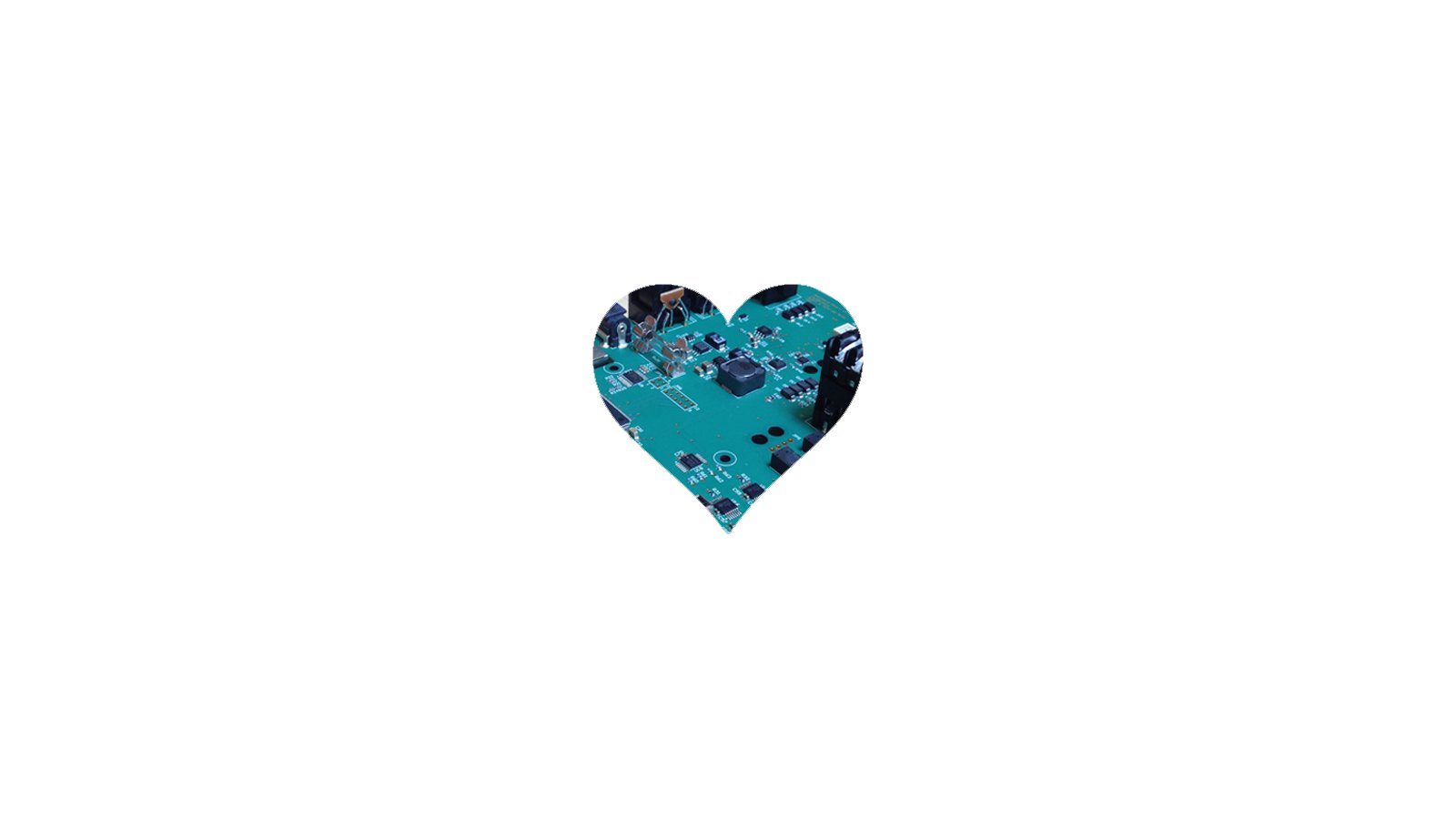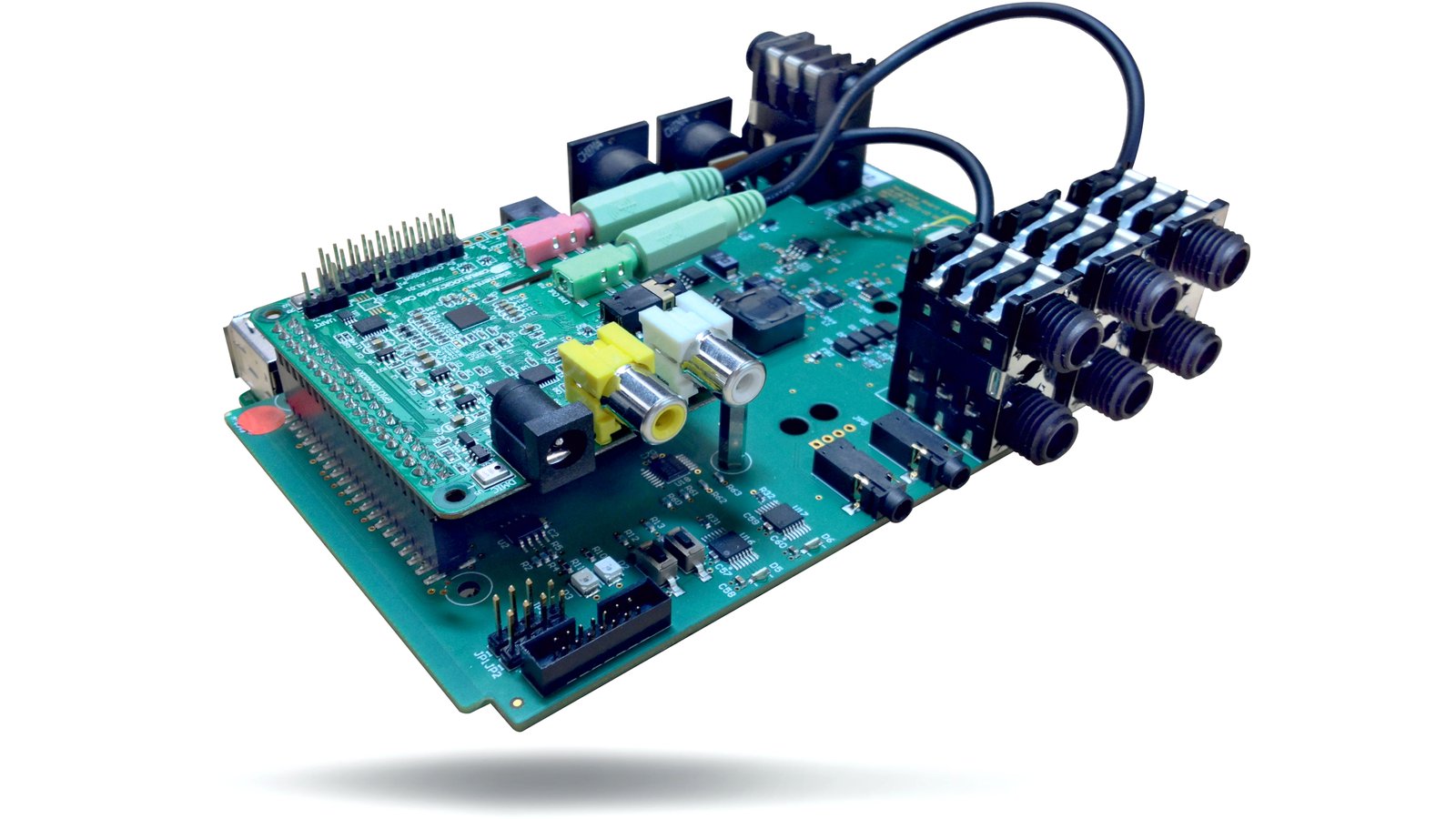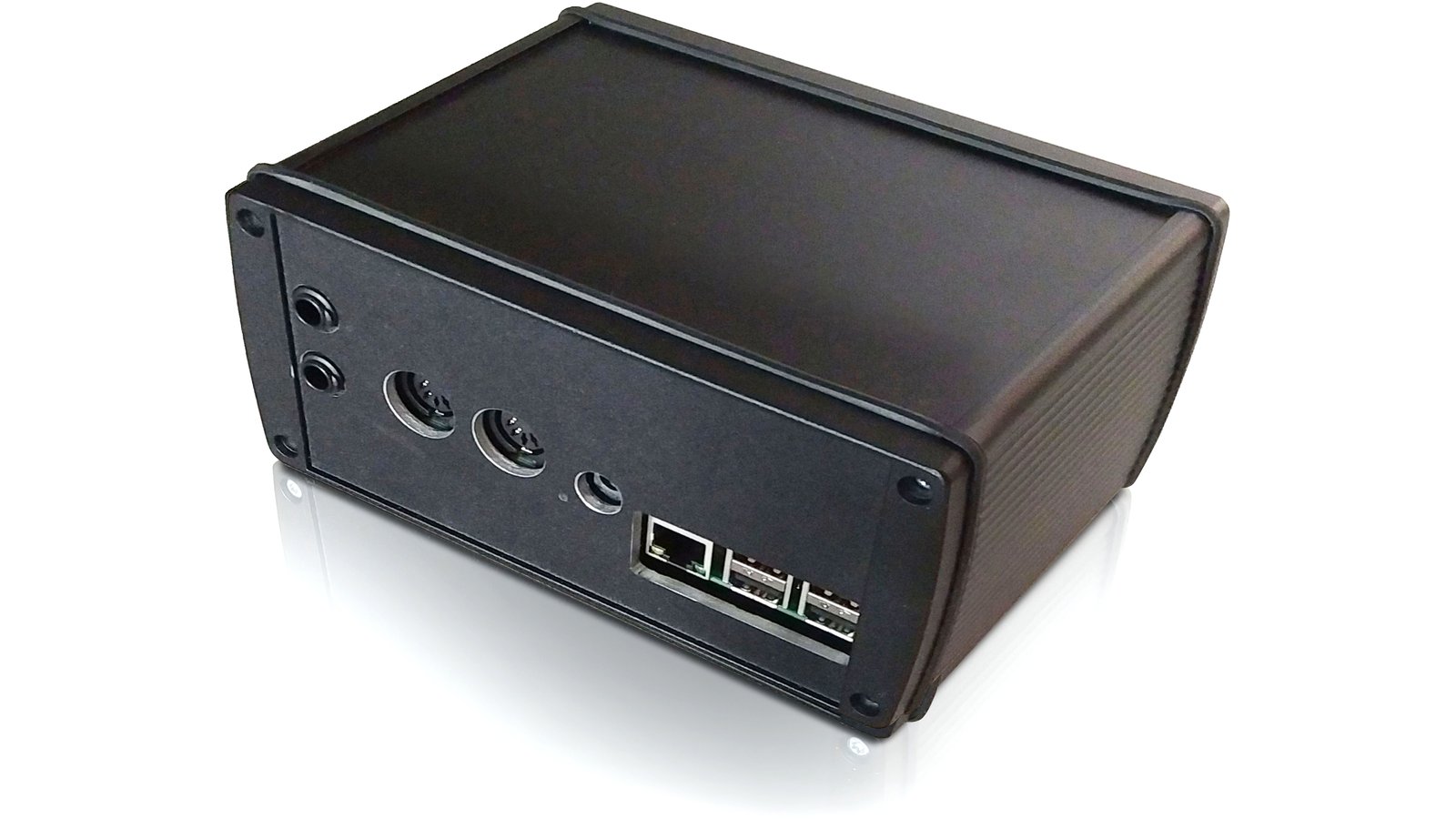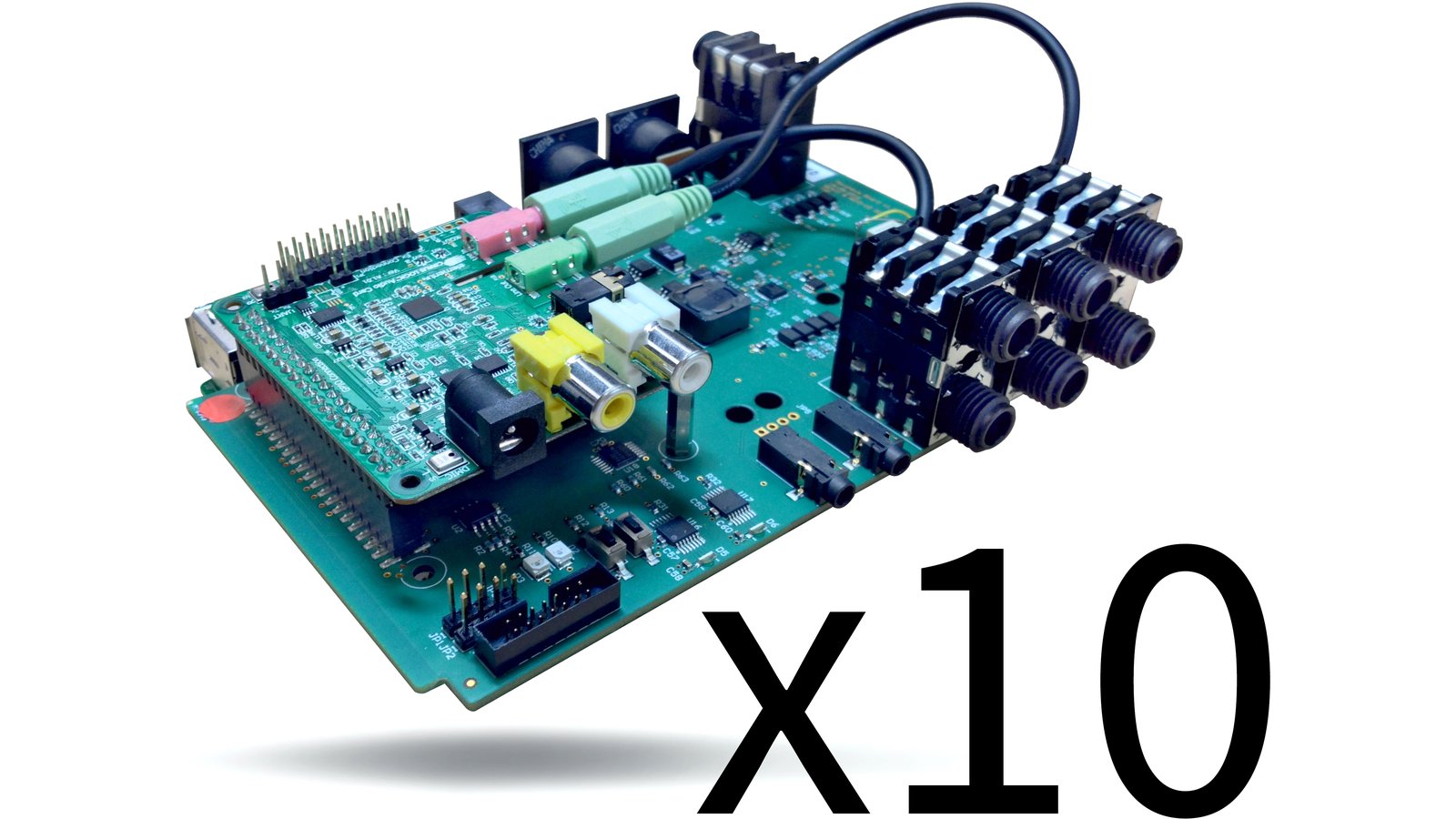BENTI
Audio & Music
FPGA Boards
BENTI
Audio & Music
FPGA Boards
Democracy is a powerful, integrated, and programmable open platform for audio processing. It is specifically designed for researchers, developers, and system engineers who study, design, implement and test real time audio processing prototyping systems.
We have been working on Democracy for almost two years now. The project started with our desire to develop our own audio products, but we couldn’t find any prototyping boards on the market that suited our needs. So we decided to build our own and Democracy was born.
Democracy DEV is equipped with a Raspberry Pi 3 processor board which provides computational power in a Linux-based environment. An onboard FPGA provides real-time, guaranteed, predictable, and jitter free capabilities which can supplement the Raspberry Pi when processing digital audio with extremely low latency. This architecture can scale in complexity as required by specific development needs. For example, one could start with basic algorithm development and programming on the onboard Raspberry Pi and then increase system complexity by exploring design partitioning on the FPGA.
Democracy DEV includes several analog inputs and outputs for audio processing. It also includes in/out MIDI ports, footswitch pedal inputs, and a universal control pedal interface for input and output expression control purposes.
Democracy is for anyone engaged in the study, design, implementation, and testing of real-time prototyping systems for audio processing.
R&D engineers & researchers will benefit from:
For academics, Democracy can take advantage of music’s youth appeal by engaging students in the study, design, and development of specific application examples in the field of audio processing. Students will be able to put into practice what they learned from digital signal processing classes by using Democracy for their audio and sound processing projects.
Democracy includes application software that comes with a set of examples for different use cases, such as music synthesis, digital audio effects, guitar effects, etc. This allows students, researchers, and algorithm developers to shorten their learning curve, and they can use the examples as a starting point for further development, improvement, or refinement. The examples support external hardware devices like MIDI controllers, (e.g., a keyboard or another musical instrument) in order to test the algorithms in real time and with a real world musical setup.
#####Above: University students playing with guitar effects implemented on Democracy DEV.
Democracy also provides support for high level abstraction languages like Pure Data and MATLAB/Simulink, which are very popular in both the academic and industrial R&D communities. This lets researchers focus on exploring, investigating, developing, and rapidly prototyping cutting-edge audio processing algorithms without having to deal with low level programming such as firmware development or device driver design.
Users can design, test and validate their algorithms in Pure Data or MATLAB/Simulink* using a standard computer. Then, they can download them to Democracy and they’ll run exactly the same way, serving as a golden reference. No exhausting bug fixing or parameter tuning needed!
*requires MATLAB with add-ons on the host PC.
| Front | Back |
|---|---|
| A. Footswitch 1 & 2 | H. Pedal In |
| B. Footswitch 3 & 4 | I. Guitar Out |
| C. MIDI In | J. Amp Out |
| D. MIDI Out | K. Headset Mic In |
| E. DC In | L. Mic In |
| F. 10/100 Ethernet | M. Pedal Out |
| G. 4x USB 2.0 | N. Aux In |
| O. Aux Out |
For more information, you can view the complete technical details.
Protect your Democracy Board in a lab or live environment with our super durable Aluminium case.
| Democracy DEV | Owl | Mod Duo | Axoloti | pedalSHIELD | Zybo | |
|---|---|---|---|---|---|---|
| Open HW | Yes | Yes | No | Yes | Yes | No |
| Processor | A 1.2 GHz 64-bit quad-core ARMv8 CPU | 168 MHz 32 bit ARM Cortex M4 | Dual Core ARM A7 1.0 GHz | 168 MHz STM32F427 microcontroller | 84 MHz 32 bit Atmel SAM3X8E ARM Cortex-M3 | ARM Cortex-A9 |
| Memory | 1 GB RAM | 1 MB external SRAM | 1 GB RAM | 8 MB SDRam | 96 KB RAM, 512 KB Flash Memory | 512 MB x32 DDR3, 128 Mb Serial Flash |
| FPGA | Xilinx Spartan-6 | None | None | None | None | Xilinx Zynq-7000 (XC7Z010-1CLG400C) - equivalent to Artix-7 FPGA |
| Connectivity | 802.11n Wireless LAN, Bluetooth 4.1, Bluetooth Low Energy (BLE), Ethernet port, 4 USB ports | Micro USB A/B | USB Host, USB Device | Full size USB host port, Micro-USB device port | - | Trimode (1 Gbit/100 Mbit/10 Mbit) Ethernet PHY, OTG USB 2.0 PHY |
| Power | 9 VDC power supply | 9V DC power socket | - | DC input (7-15 V) | 5 V DC power socket | 5 V DC |
| Control Pedal I/O | 6.35 mm stereo jack sockets for 2x dual foot switch pedal inputs, Universal control pedal input, Universal control pedal output | Expression pedal input, 1/4 TRS | Control-Chain – RJ-45 | None | None | None |
| Audio Connectors In | 6.35 mm mono jack sockets for High Z guitar input and Aux line input | 2 x mono Jack input, 1/4 inch unbalanced, Z=2M | 2 TS connectors | 1/4″ stereo input jack | Input Jack, 1/4 inch unbalanced, Zin=10 MΩ | None |
| Audio Connectors Out | 6.35 mm mono jack sockets for Main audio output, Aux line output and Amp output | 2 x mono Jack output, 1/4 inch unbalanced, Z=1k | 2 TS connectors | 1/4″ stereo output jack | Output Jack, 1/4 inch unbalanced, Zout=1 KΩ | None |
| Audio Codec | 24-bit, up to 192 kHz | 24 bit / 96 kHz AD/DA | Cirrus Logic 24 bit / 48 kHz AD/DA | 24 bit/96kHz capable stereo audio ADC/DAC | Up to 192 kHz, 12 bits | 96 kHz |
| Mic In | Yes | Yes | Yes | None | None | Yes |
| Headphone Out | Yes | Yes | Yes | None | Yes | Yes |
| MIDI I/O | 5-pole DIN | USB only | 5-pole DIN | 5-pole DIN | None | None |
| Coding Framework | C/C++, HDL, Pure Data, MATLAB/Simulink support | C/C++ | LV2 plugin standard | Axoloti patcher (proprietary) | C/C++ (Arduino platform) | ISE® WebPACK Design Software, MATLAB/Simulink support |
| Cost | $299 | $326 (~£249) | $399 | ~$73 (€65) | ~$52 (£39.95) | $189.00 |
We have tested several design and engineering iterations of Democracy DEV boards. We now have a fully functional, final design prototype, that works exactly as we want in every single aspect. We are ready for the first production run. If this campaign successfully reaches its funding goal, we will be able to start production and hit the market with our product in a few months.
Our board is 100% engineered in Switzerland, and we will produce the first production batches with a solid supplier that has many years of experience working in the field.
We have our final product, and the manufacturer is lined up and confirmed. We don’t foresee any specific delays, however things do happen. In the event of a delay or setback, we agree to publicly and transparently communicate Democracy DEV’s production status - along with updated estimates of the delivery schedule.
What is Democracy DEV’s ‘killer feature’?
Super-flexibility and power. It is built with a Raspberry Pi, a powerful FPGA, and a variety of wired and wireless connections - including MIDI, stereo and mono Jack, wifi, bluetooth, and more. Democracy can run your algorithms real time and works with any instrument or controller attached to it, such as a guitar, microphone, MIDI device, or any expression pedal.
What about software?
You can use all kinds of programming languages, from C/C++, to HDL (VHDL/Verilog) to program Democracy DEV. You can also create your own Pure Data patches, and then download and run them on Democracy. Finally, there is a support package for MATLAB/Simulink so you can simulate, tune, and tweak your algorithm in real-time until you get it just right.
Where can I get the design files?
All Democracy design files can be found on GitHub.
Do you need other accessories to use DemoCracy DEV? No, Democracy is totally plug-and-play. Just load your algorithm and it’ll run on DemoCracy exactly like on your PC.
BENTI is the designer and developer of Democracy DEV. They work on digital audio R&D with the support of Swiss universities and innovation agencies. BENTI SA was started in 2014 in Y-Parc, Switzerland, with the idea of creating powerful, democratic, and easy-to-use products for the digital audio R&D community.
Democracy DEV was designed in collaboration with the ReDS institute of the HEIG-VD school. HEIG-VD is the School of Engineering and Management Vaud. With over 2,000 students in its Bachelor, Master and Postgraduate programs, it is the largest school of the University of Applied Sciences and Arts of Western Switzerland.
The Reconfigurable & Embedded Digital Systems (ReDS) institute is part of the Department of Information and Communications Technology (ICT) of HEIG-VD, and has a history of strong R&D expertise in high-performance embedded systems.
We are very proud and happy to share with them the merits of our Democracy DEV design.
The project has also received a research grant from the Swiss Federal Commission for Innovation and Technology (CTI).
The project also got support from many more public and private institutions, such as Innovaud, the main regional fund that helps the best tech start-ups in the Vaud region of Switzerland, and DEV, the Economic Development department of Vaud.
BENTI would would like to sincerely thank them all.
##Democracy DEV Design Team
Michel Starkier has been professor with ReDS since 2007. His research activities focus on embedded system design and implementation, as well as FPGA-based numerical computing and algorithm implementation. Prof. Starkier has a deep technical background on audio and sound processing. Most notably, he has been working with IRCAM (the Research and Acoustic/Music Coordination Institute in Paris) for seven year, where he dealt with the study and design of sound synthesis and processing systems.
Alberto Dassatti has been Professor at the ReDS department since 2012. His main research interests are in the field of high performance computing, algorithm design on FPGA, DSP processing and reconfigurable computing.
Anthony Convers has a technical background on multimedia applications and embedded systems. He’s currently working with the ReDS Department as an Hardware Engineer for Reconfigurable Systems.
Florian Vassaurd graduated at EPFL, in Switzerland, where he also got his PhD on robotics systems. He’s currently working with the ReDS Department as a senior software engineer with particular focus on Linux based systems.
Luciano Ciamarone is a researcher, guitarist and composer. He cooperates with the Center of Musical Research in Rome and has been Research Engineer with BENTI for three years. His technical background is in the field of electronic music composition, guitar physics and mechanics. His research interests include spatialization, signal processing, instruments augmentation, interactive art.
"This architecture can scale in complexity as required by specific development needs."
Produced by BENTI in Switzerland.
Sold and shipped by Crowd Supply.

Support the campaign and get Democracy news first! We will keep you posted on the coolest audio applications the community is developing on Democracy.

One Democracy DEV board. Democracy is an open Raspberry Pi 3 + FPGA Platform for Real-time Embedded Audio Processing. Including analog and MIDI I/O for audio processing, footswitch pedal inputs, and a universal control pedal interface for In/Out expression control purposes. $299 USD is a campaign-only exclusive price. Orders placed after the campaign ends will cost $349 USD, and the boards will eventually retail for $399 USD.

Protect your Democracy Board on a lab or live environment with our super durable Aluminum case.

Get ten Boards at at a 10% discounted rate. This package suits the Academic community or industrial R&D departments for teaching, research and product development activities in the field of advanced audio and sound processing. The discount also applies to the Application Software Library and the aluminium case - contact us for more information if interested.

We create highly portable and embeddable digital audio systems for sound analysis, emulation and synthesis.